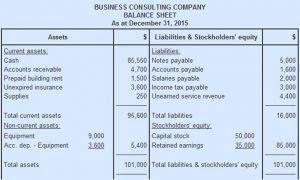Gross Profit Vs Net Profit
Content

Multiply the number of hours you receive each week by the total amount you earn in an hour. https://www.bookstime.com/ She’s worked with small businesses for over 10 years as an educator, marketer and designer.
- It also considers other income and losses from sources outside of business operations like gains or losses from investments.
- And if you’re an hourly worker, your annual gross income would be what you earn per hour multiplied by the number of hours you work every year.
- Going back to our example, this employee would compute his annual net pay of $21,000.
- This is to say, net income is the income that results after the deduction of all expenses from the gross income and set off and carry forward of losses.
Revenue is the total amount of money earned from sales for a particular period, such as one quarter. Revenue is sometimes listed as net sales because it may include discounts and deductions from returned or damaged merchandise. For example, companies in the retail industry often report net sales as their revenue figure. The merchandise that has been returned by their customers is subtracted from total revenue. Revenue is often referred to as the “top line” number since it is situated at the top of the income statement. When calculating personal net income, commute costs, work attire, and income taxes should all be deducted. For business net profit, all operating costs, salaries, and additional expenses should be deducted from total revenue.
How To Calculate Gross Vs Net Profit
Your business’s net profit is known as a net loss if the number is negative. Employees or wage earners use the terms gross income and gross pay interchangeably. Gross income, to an employee, is the total wage or salary that an employer pays the employee before taxes and other deductions are taken out of their paycheck. Keep in mind; this is not the gross amount that the employee actually gets to take home. Your taxable income is what’s left after subtracting standard deductions, and it can be significantly less than your gross income. Your gross income is more than just a starting point on your tax forms, though.
Revenue is the amount of income generated from the sale of a company’s goods and services. Gross profit helps investors to determine how much profit a company earns from the production and sale of its goods and services.
After the gross income and deduction totals have been established, subtracting the total deductions from the gross income amount shows the employee’s net income. Helping employees know where to find these three figures on their pay stubs helps them double-check their total pay. Understanding net versus gross income is important for your budget, taxes, loan applications, and more. Taking the time to understand how to calculate them and the different ways they affect you can help you be better prepared at tax time—and lead to better decisions about your money management. Your gross income is all of the payments you receive from clients or customers for the year before expenses. If you’re a freelancer or independent contractor, clients typically don’t withhold taxes from payments made to your business. Gross refers to the whole of something, while net refers to a part of a whole following some sort of deduction.
Gross Profit Vs Net Income: What’s The Difference?
On the other hand, net income refers to your income after taxes and deductions are taken into account. For companies, gross income is revenue after cost of goods sold has been subtracted. That makes a business’ net income equal to profit, or net earnings.
- For kids, gross income is often an allowance, but it can be gift money or funds they earn from their chores or doing under-the-table jobs.
- In business parlance, Gross Income refers to the income arising after deducting direct expenses from sales.
- For example, your company is selling a product for $10 each, but the cost for making the product amounts to $11, resulting in your company losing $1 for every piece of product sold.
- The most common place you’ll see references to gross and net income is your paycheck.
- By tracking each-and-every expense (in each-and-every possible category) you can accurately examine your company’s health and profitability.
- Marketplace gives you access to projects at top companies who value independent talent.
Net income is calculated as the gross profit minus the total expenses that a business has during a specific period of time. This can include things like direct costs, indirect costs, and selling costs. For example, when calculating net income for a company with $10 million in revenue and $2 million in expenses, net income would be $8 million. Gross income is the total amount of revenue – money made – that a business or individual receives in a specific time period. Gross income includes all types of income, such as cash receipts, the sale of goods or services, and other gains.
Differences Between Revenue And Net Income
Curate known talent to quickly fill workforce gaps and have an on-demand workforce ready to deploy in days, if not hours. Enhance your direct sourcing capabilities through proactive recruiting and managing groups of qualified independent talent in critical density areas. Learn how to achieve full workforce optimization and become a more agile enterprise.

Your lender will compare your Operating Profit Margin to the size of your business to determine your stability. Every kind of negative transaction, even the simple return of a defective product for another one, counts as an expense.
Company
Net income is the amount of revenue left in a company’s cash reserves after all expenses and taxes. This number can be used to measure profitability and assess how well the company is doing financially. Gross income is a term that refers to the amount of money made by a business before accounting for expenses such as tax and interest payments. Gross income is an important metric in calculating the net income of a business. Gross income for individuals should not be confused with gross income for businesses.

In simplistic terms, net profit is the money left over after paying all the expenses of an endeavor. The bookkeeper or accountant must itemise and allocate revenues and expenses properly to the specific working scope and context in which the term is applied. In business and accounting, net Gross vs Net Income income is an entity’s income minus cost of goods sold, expenses, depreciation and amortization, interest, and taxes for an accounting period. Often investors will be more interested in your gross revenue because it shows your businesses’ ability to generate sales and potential for growth.
Gross Vs Net Income: Differences And How To Calculate
She rents out her spare room on Airbnb, which gives her an additional income of $900 per month. She then deducts the interest on her student loan ($150), which is an above-the-line deduction, to arrive at a gross monthly income of $3,750. Many oil companies have reported lower than average gross income during the crude surplus. If you aren’t sure whether the number you are looking at represents net or gross pay, continue reading to learn more.

However, workers can still take advantage of pre-tax deductions, even if they’re paid via 1099. Employers are responsible for paying half of an employee’s FICA taxes. Before we wrap this post up, let’s summarize the difference between gross and net pay. Second, he and his friend calculate his tax liabilities and desired voluntary deductions. He needs to calculate his net income in order to figure out whether he can save enough money for retirement and still have the funds to live a decent day-to-day life. Federal taxes remain constant for all individuals working within the United States, but exactly how you pay them may differ depending on your exact employment situation.
Why I Always Use Turbotax To Do My Own Taxes
Conversely, reducing prices might result in higher sales with a lower margin. Finding out which works best for you overall may involve trial-and-error. Sophisticated forecasting software can also help you to strike the right balance between targeting volume sales and product margins. Third, they together subtract his deductions and taxes from his gross pay. This is particularly true for deductions and taxes, which you’ll mostly have to calculate independently, before you have numbers for gross or net pay.
If you’re interested in comparing your pay to average salaries in your field, visit Indeed’s Salary Calculator for a free, personalized pay range based on your location, industry and experience. Money or Money Equivalent which a firm or an individual earns during a financial year that adds to the value of currently held net assets is the income. Report your independent contractor payments with confidence on Form 1099-NEC. Other pass-through business owners report net income from the business on Part II of Schedule E, Supplemental Income and Loss.
Gross Pay Vs Net Pay
Typically, gross profit doesn’t includefixed costs, which are the costs incurred regardless of the production output. For example, fixed costs might include salaries for the corporate office, rent, and insurance. On the other hand, the net interest rate is the effective interest that an individual will be charged after taxes and other statutory charges have been deducted or adjusted from the gross pay.
Management can then decided to reduce operating costs, or devise ways to bolster sales. In such a case, there is no doubt that the fault lies within the management of operating costs. It shows management’s ability to manage costs and expenses while squeezing the most profit out of them. If you’re in the manufacturing business, you’d have to purchase materials to convert into sellable goods, and you’d have also to pay for labor and any other costs involved in the manufacturing. Business net income shouldn’t be confused with individual net income. We’ve outlined gross income vs net income to help you use both financial principles in the correct way. Similarly, state and local taxes can differ dramatically not only between different regions but also between different employee types.
